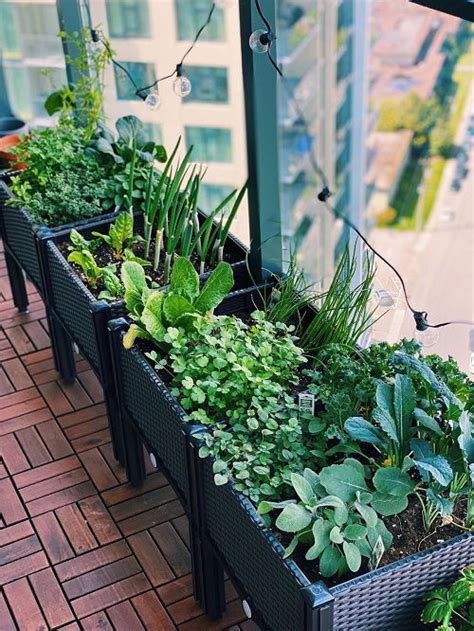The Best Herbs to Thrive in a Small Balcony Garden
Balcony gardening offers urban dwellers an opportunity to grow their own fresh herbs despite limited space. By using effective container gardening strategies, you can cultivate a variety of culinary herbs that bring both flavor and function to your meals. In this guide, we’ll explore the best herbs to grow in a small balcony garden, practical tips for success, and the gardening benefits you’ll enjoy along the way.
Introduction
Growing herbs in a small balcony garden is an ideal way to start urban gardening. Not only do herbs require minimal space, but they also thrive in container gardening setups. This article provides a comprehensive look at the best herbs to grow on your balcony, how to care for them, and how to maximize your limited space. Whether you’re a novice or a seasoned gardener, this guide will provide insights to ensure your garden is both productive and aesthetically pleasing.
Key Concepts
- Balcony gardening: The practice of growing plants in limited outdoor spaces such as balconies, terraces, or rooftops.
- Container gardening: Using pots, planters, or containers to grow plants instead of traditional ground soil.
- Culinary herbs: Herbs that are used in cooking, such as basil, thyme, rosemary, and mint.
- Small space gardening: Maximizing the use of small areas to grow a variety of plants.
Historical Context
Growing herbs in small spaces isn’t a new practice. In ancient Rome, balcony gardens were commonplace in dense urban areas. Herbs like mint, thyme, and rosemary were grown in pots placed on windowsills and balconies, providing easy access to fresh flavors and medicinal remedies. Over time, this practice evolved into the urban gardening trend we see today, driven by both necessity and the desire for fresh, organic produce in densely populated areas.
Current State Analysis
In today’s cities, space constraints and environmental concerns have led to a resurgence in balcony gardening. Container gardening offers solutions for people without backyards, while advancements in potting materials, irrigation systems, and compact gardening tools make it easier than ever to grow herbs in small spaces. The best herbs for small balconies are those that require minimal maintenance, thrive in containers, and provide continuous harvests. Key herbs to consider include:
- Basil: Perfect for warm, sunny spots; commonly used in Mediterranean dishes.
- Thyme: A hardy herb that thrives in small pots; ideal for dry climates.
- Rosemary: Loves sunlight and can grow well in compact spaces.
- Mint: A fast-growing herb, but it’s best kept in its own container as it can spread quickly.
- Parsley: A versatile herb that grows well in partial shade.
Practical Applications
Maximizing your balcony garden space involves thoughtful placement of containers, ensuring optimal sun exposure and easy access for watering and harvesting. Here are some key tips:
- Use vertical space: Hanging baskets, shelves, and vertical planters help you make the most of your space.
- Choose the right containers: Opt for pots with good drainage and materials like terracotta or fabric for better air circulation.
- Group herbs with similar needs: Place sun-loving herbs like basil and rosemary together, while shade-tolerant herbs like parsley can be grouped elsewhere.
- Rotate your containers: If your balcony gets uneven sunlight, rotating the pots can ensure even growth.
Case Studies
Let’s take a look at two successful small space gardening setups:
| Case Study | Herbs Grown | Techniques Used |
|---|---|---|
| Rooftop Balcony in New York City | Thyme, rosemary, oregano | Vertical planters, self-watering containers |
| Apartment Balcony in San Francisco | Basil, mint, parsley | Fabric grow bags, shade nets for partial sunlight |
Stakeholder Analysis
Urban gardeners, local governments, and environmentalists are all stakeholders in the balcony gardening movement. For urban gardeners, the focus is on personal benefits like fresh produce and reduced grocery costs. Local governments encourage such gardening practices to promote sustainability and improve air quality, while environmentalists advocate for balcony gardens as part of a larger urban greening initiative.
Implementation Guidelines
- Start small with a few pots and expand as you gain confidence.
- Choose containers with good drainage to avoid waterlogging your herbs.
- Consider the weight of your containers; balconies can only support a limited load.
- Research the specific sunlight needs of each herb and position them accordingly.
- Water consistently but avoid overwatering. Herbs like rosemary and thyme prefer drier soil.
Ethical Considerations
When growing herbs in an urban environment, it’s important to consider the environmental impact. Choose sustainable gardening materials, such as biodegradable pots and organic soil. Additionally, avoid using synthetic fertilizers and pesticides, which can pollute nearby water sources and harm local wildlife. Ethical considerations also extend to water usage—using efficient watering systems like drip irrigation can help reduce waste.
Limitations and Future Research
While balcony gardening offers numerous benefits, it does have limitations. Space restrictions may limit the variety of herbs you can grow, and not all herbs are suited to container life. Future research could explore new types of compact, high-yield herb varieties specifically bred for urban gardening. Additionally, advancements in sustainable, space-efficient container systems could further revolutionize small-space gardening.
Expert Commentary
Balcony gardening is more than just a trend—it’s a practical solution for urban residents who want to take control of their food sources and enjoy the mental and physical health benefits of gardening. According to experts in urban gardening, one of the best ways to ensure a thriving balcony garden is by selecting herbs that are suited to your specific climate and space constraints. Dr. Maria Ruiz, a horticulturist with over 20 years of experience, emphasizes the importance of “starting with hardy herbs like rosemary and thyme, which can tolerate a wide range of conditions and require less frequent watering.”
From a research perspective, the growing interest in small space gardening highlights the potential for integrating more green spaces into urban environments, which benefits not only the individual gardener but the community as a whole.


